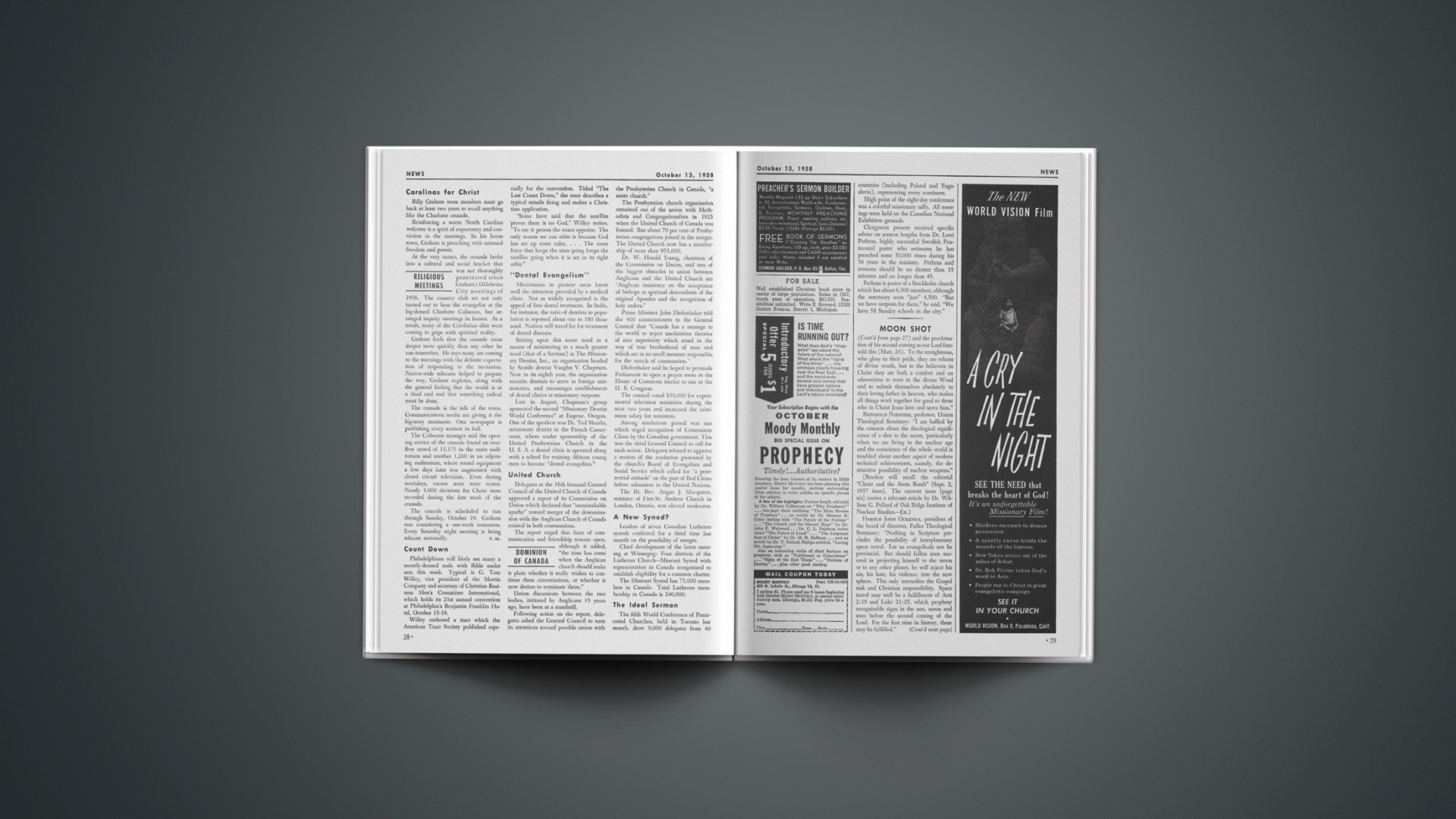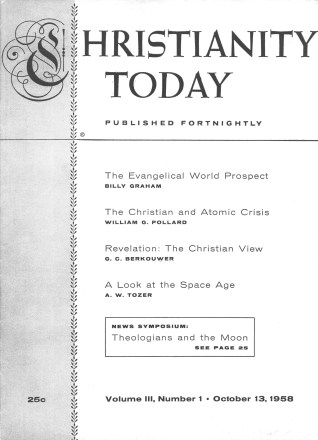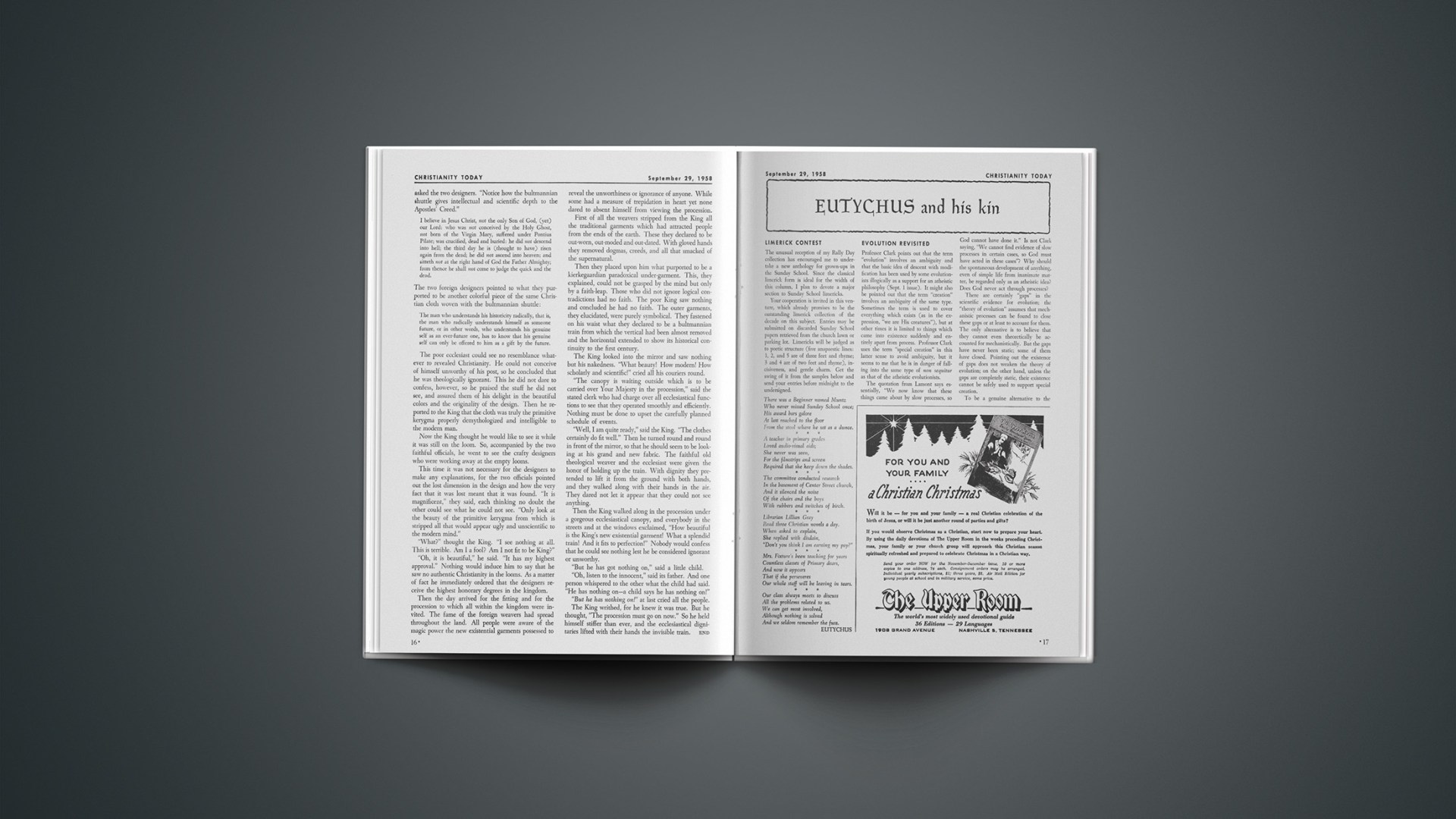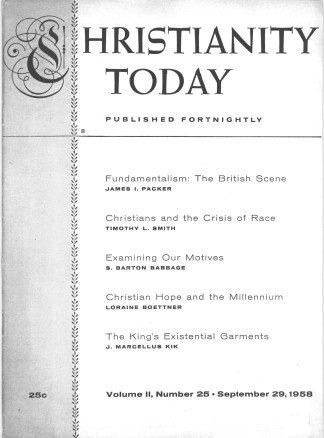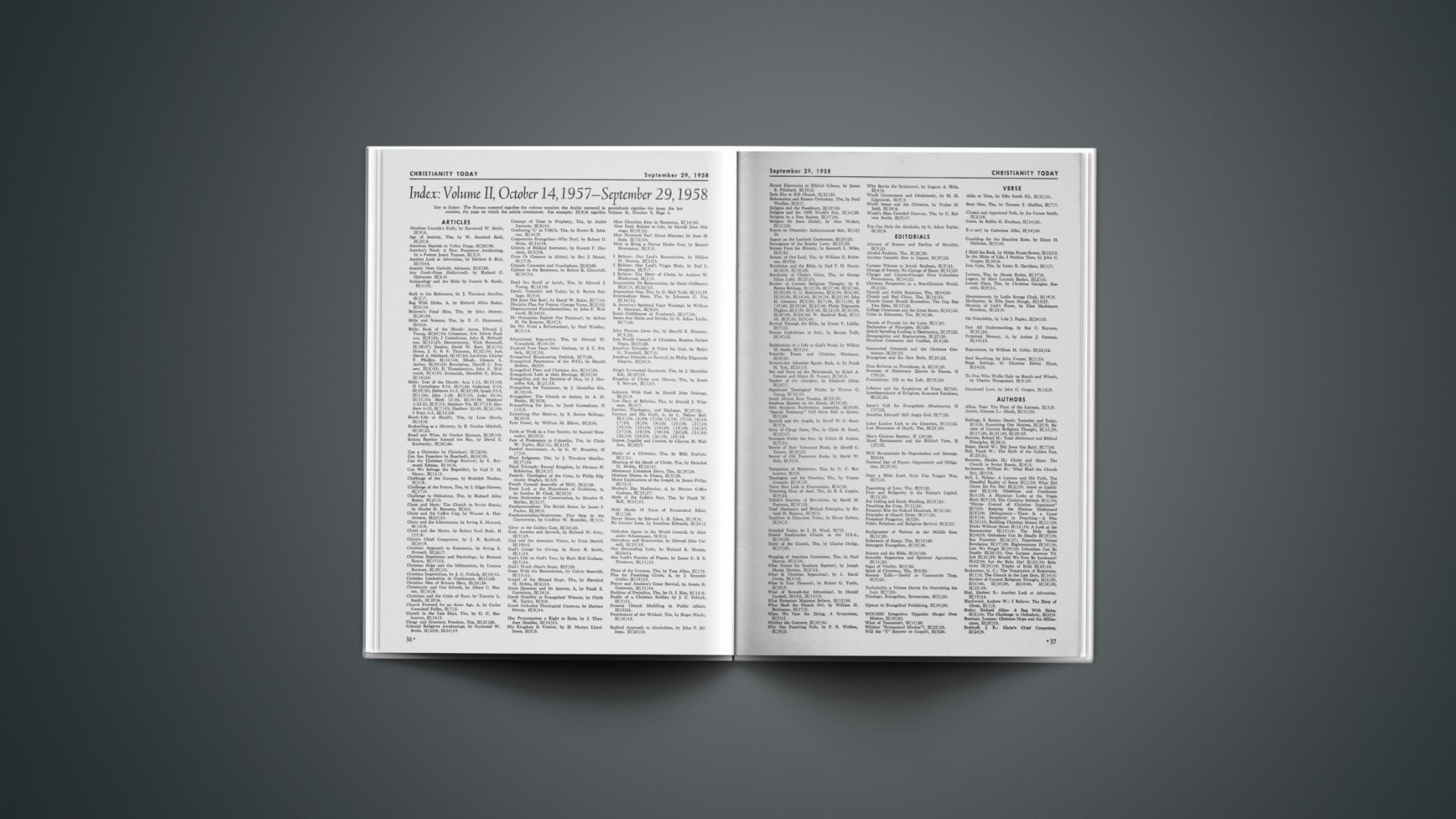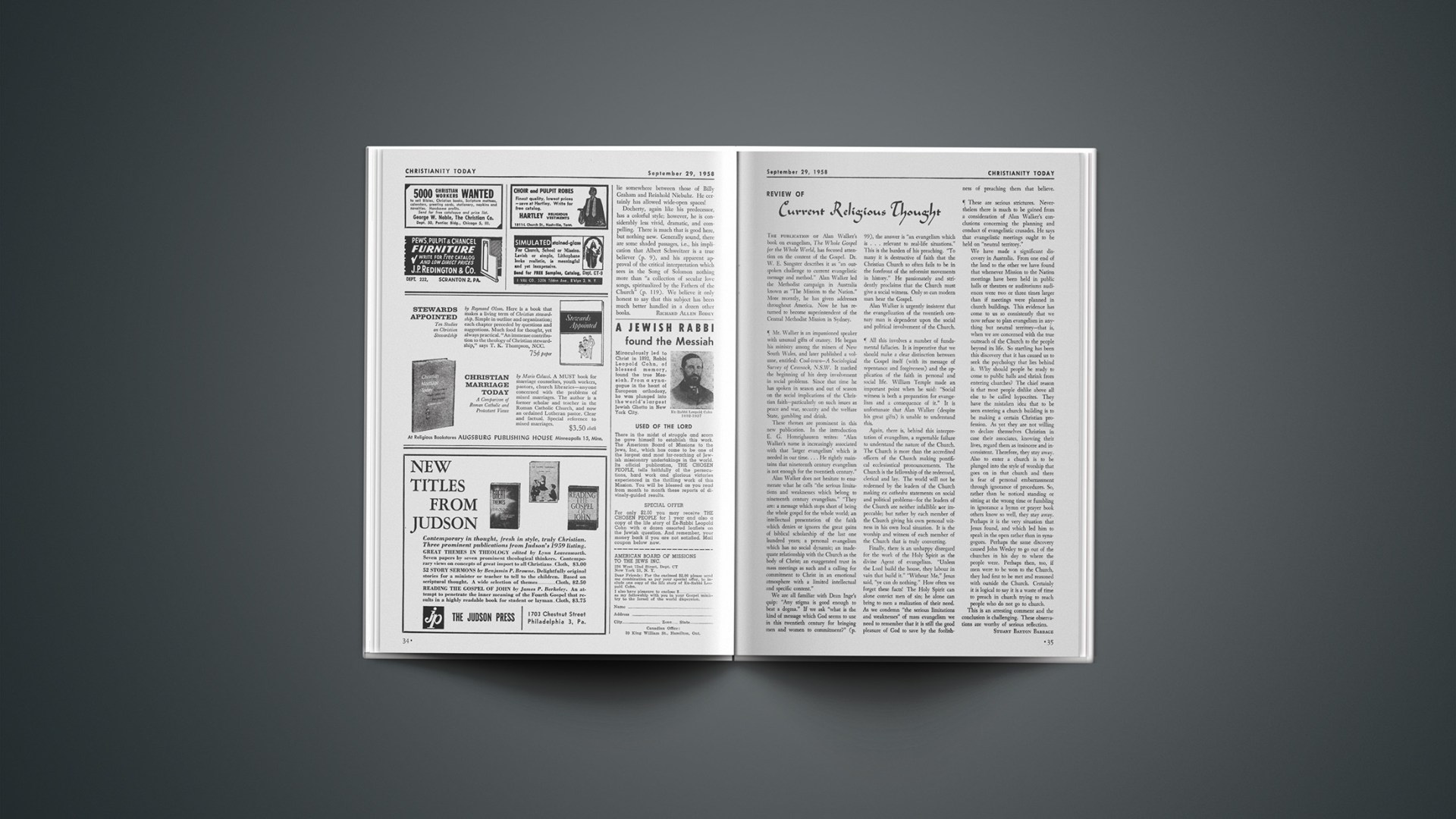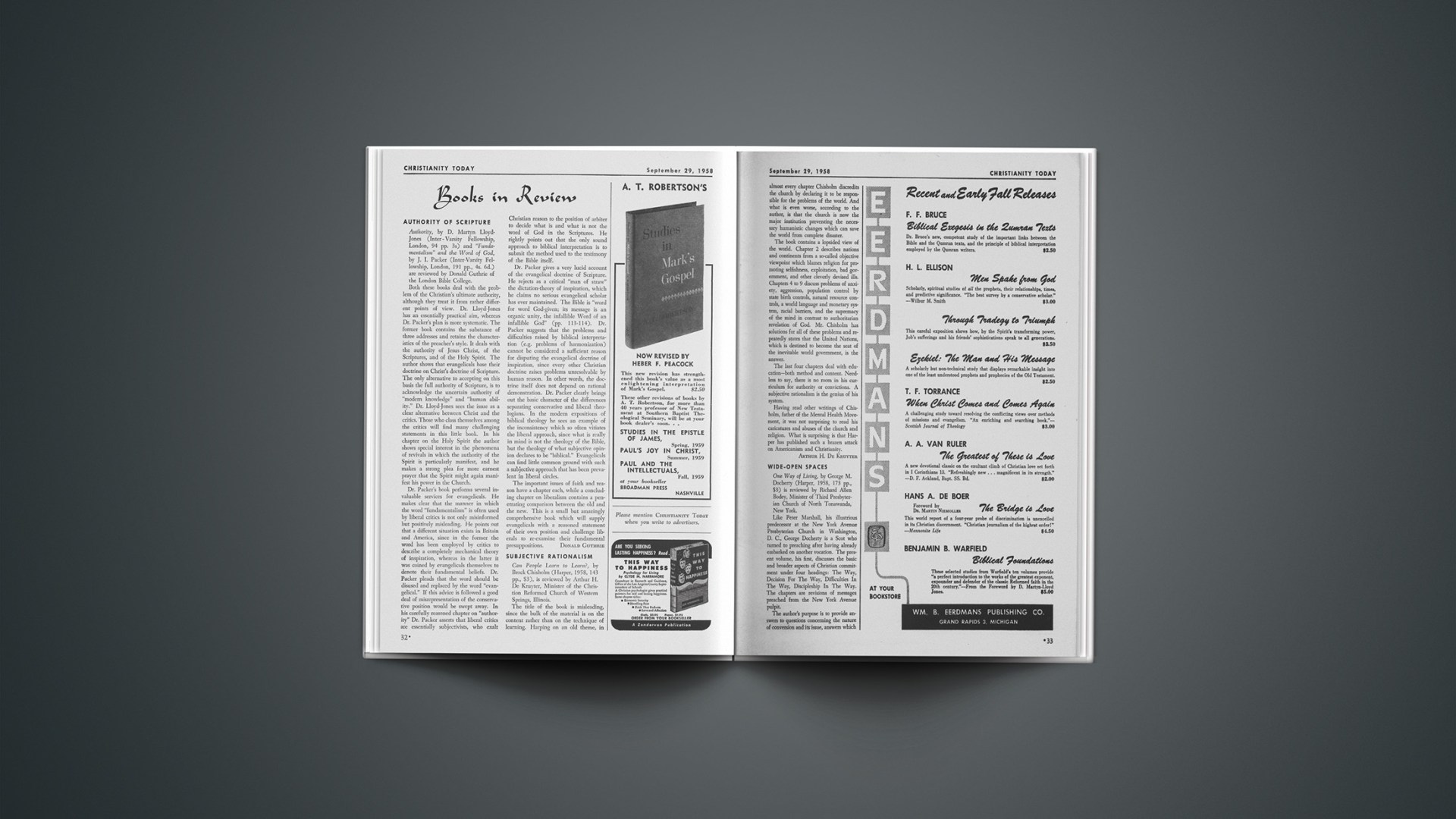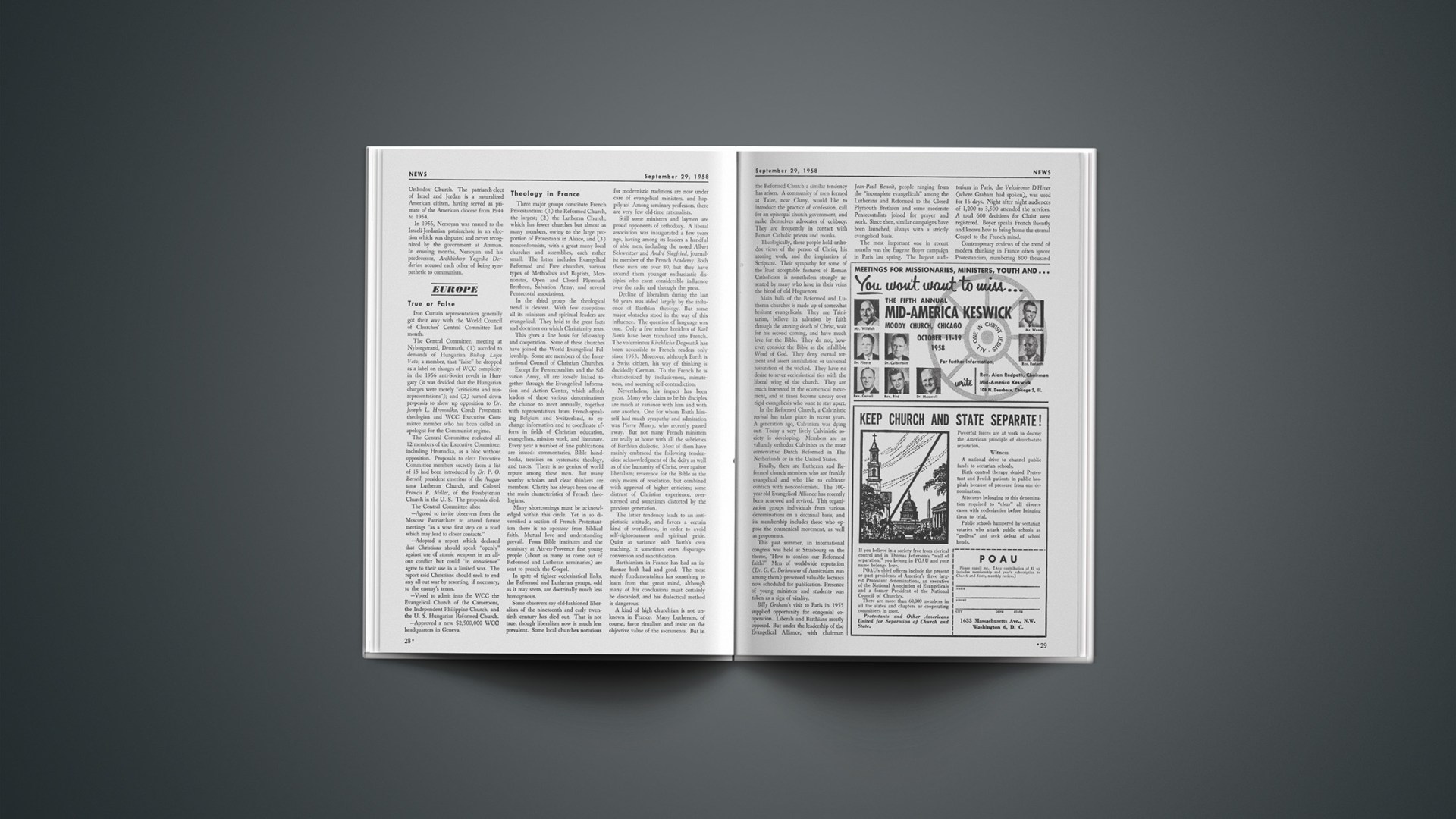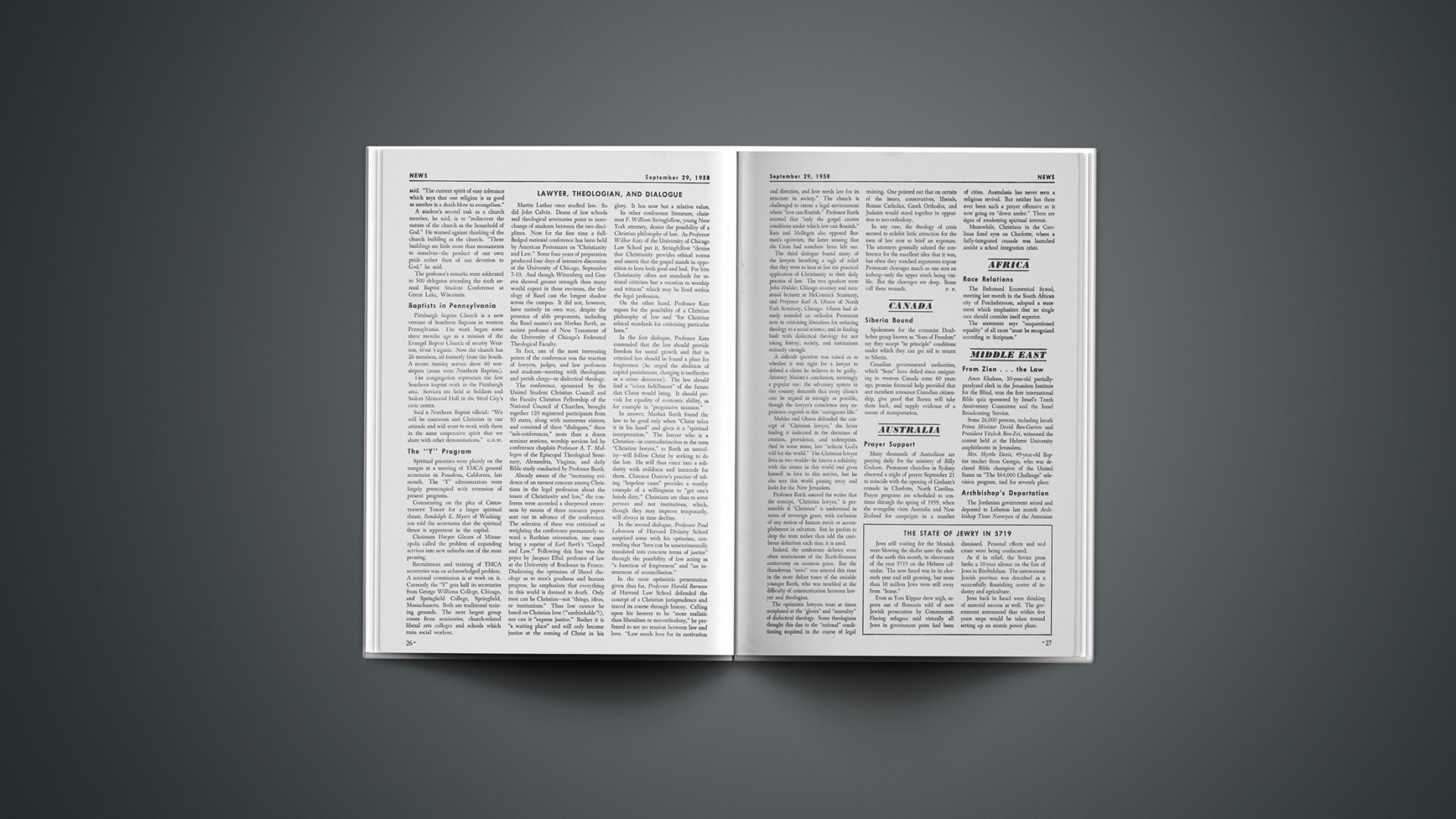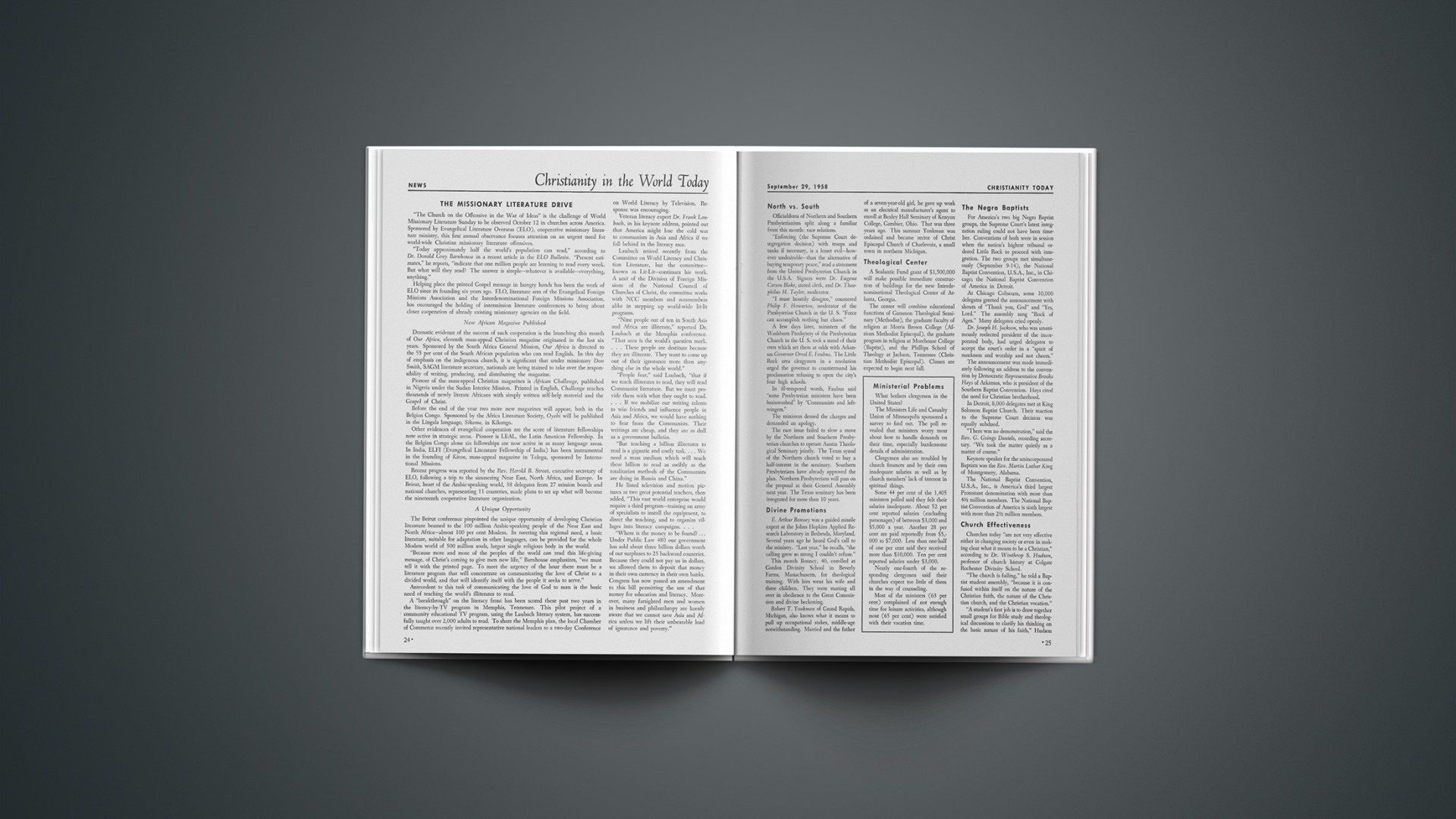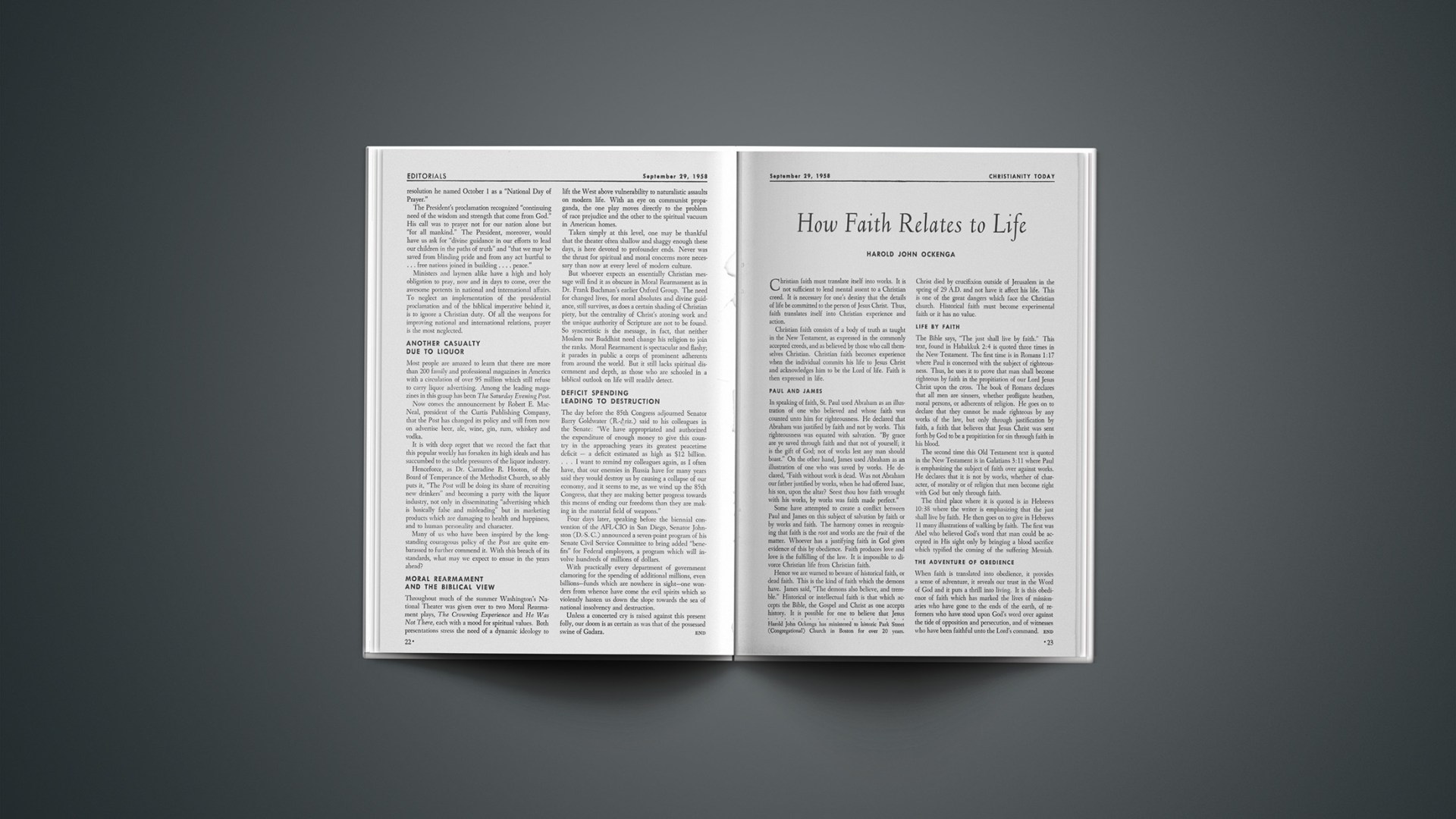Religious Meetings
Carolinas For Christ
Billy Graham team members must go back at least two years to recall anything like the Charlotte crusade.
Reinforcing a warm North Carolina welcome is a spirit of expectancy and conviction in the meetings. In his home town, Graham is preaching with unusual freedom and power.
At the very outset, the crusade broke into a cultural and social bracket that was not thoroughly penetrated since Graham’s Oklahoma City meetings of 1956. The country club set not only turned out to hear the evangelist at the big-domed Charlotte Coliseum, but arranged inquiry meetings in homes. As a result, many of the Carolinian elite were coming to grips with spiritual reality.
Graham feels that the crusade went deeper more quickly than any other he can remember. He says many are coming to the meetings with the definite expectation of responding to the invitation. Nation-wide telecasts helped to prepare the way, Graham explains, along with the general feeling that the world is at a dead end and that something radical must be done.
The crusade is the talk of the town. Communications media are giving it the big-story treatment. One newspaper is publishing every sermon in full.
The Coliseum manager said the opening service of the crusade found an overflow crowd of 13,175 in the main auditorium and another 1,200 in an adjoining auditorium, where sound equipment a few days later was augmented with closed circuit television. Even during weekdays, vacant seats were scarce. Nearly 3,000 decisions for Christ were recorded during the first week of the crusade.
The crusade is scheduled to run through Sunday, October 19. Graham was considering a one-week extension. Every Saturday night meeting is being telecast nationally.
T. M.
Count Down
Philadelphians will likely see many a smartly-dressed male with Bible under arm this week. Typical is G. Tom Willey, vice president of the Martin Company and secretary of Christian Business Men’s Committee International, which holds its 21st annual convention at Philadelphia’s Benjamin Franklin Hotel, October 15–19.
Willey authored a tract which the American Tract Society published especially for the convention. Titled “The Last Count Down,” the tract describes a typical missile firing and makes a Christian application.
“Some have said that the satellite proves there is no God,” Willey writes. “To me it proves the exact opposite. The only reason we can orbit is because God has set up some rules.… The same force that keeps the stars going keeps the satellite going when it is set in its right orbit.”
“Dental Evangelism”
Missionaries in pioneer areas know well the attraction provided by a medical clinic. Not as widely recognized is the appeal of free dental treatment. In India, for instance, the ratio of dentists to population is reported about one to 180 thousand. Natives will travel far for treatment of dental diseases.
Seizing upon this acute need as a means of ministering to a much greater need (that of a Saviour) is The Missionary Dentist, Inc., an organization headed by Seattle dentist Vaughn V. Chapman. Now in its eighth year, the organization recruits dentists to serve as foreign missionaries, and encourages establishment of dental clinics at missionary outposts.
Late in August, Chapman’s group sponsored the second “Missionary Dentist World Conference” at Eugene, Oregon. One of the speakers was Dr. Ted Shanks, missionary dentist in the French Camerouns, where under sponsorship of the United Presbyterian Church in the U. S. A. a dental clinic is operated along with a school for training African young men to become “dental evangelists.”
Dominion Of Canada
United Church
Delegates at the 18th biennial General Council of the United Church of Canada approved a report of its Commission on Union which declared that “unmistakable apathy” toward merger of the denomination with the Anglican Church of Canada existed in both communions.
The report urged that lines of communication and friendship remain open, although it added, “the time has come when the Anglican church should make it plain whether it really wishes to continue these conversations, or whether it now desires to terminate them.”
Union discussions between the two bodies, initiated by Anglicans 15 years ago, have been at a standstill.
Following action on the report, delegates asked the General Council to turn its attentions toward possible union with the Presbyterian Church in Canada, “a sister church.”
The Presbyterian church organization remained out of the union with Methodists and Congregationalists in 1925 when the United Church of Canada was formed. But about 70 per cent of Presbyterian congregations joined in the merger. The United Church now has a membership of more than 955,000.
Dr. W. Harold Young, chairman of the Commission on Union, said two of the biggest obstacles to union between Anglicans and the United Church are “Anglican insistence on the acceptance of bishops as spiritual descendants of the original Apostles and the recognition of holy orders.”
Prime Minister John Diefenbaker told the 400 commissioners to the General Council that “Canada has a message to the world to reject unchristian theories of race superiority which stand in the way of true brotherhood of man and which are in no small measure responsible for the march of communism.”
Diefenbaker said he hoped to persuade Parliament to open a prayer room in the House of Commons similar to one in the U. S. Congress.
The council voted $50,000 for experimental television ministries during the next two years and increased the minimum salary for ministers.
Among resolutions passed was one which urged recognition of Communist China by the Canadian government. This was the third General Council to call for such action. Delegates refused to approve a section of the resolution presented by the church’s Board of Evangelism and Social Service which called for “a penitential attitude” on the part of Red China before admission to the United Nations.
The Rt. Rev. Angus J. Macqueen, minister of First-St. Andrew Church in London, Ontario, was elected moderator.
A New Synod?
Leaders of seven Canadian Lutheran synods conferred for a third time last month on the possibility of merger.
Chief development of the latest meeting at Winnepeg: Four districts of the Lutheran Church—Missouri Synod with representation in Canada reorganized to establish eligibility for a common charter.
The Missouri Synod has 75,000 members in Canada. Total Lutheran membership in Canada is 240,000.
The Ideal Sermon
The fifth World Conference of Pentecostal Churches, held in Toronto last month, drew 9,000 delegates from 40 countries (including Poland and Yugoslavia), representing every continent.
High point of the eight-day conference was a colorful missionary rally. All meetings were held on the Canadian National Exhibition grounds.
Clergymen present received specific advice on sermon lengths from Dr. Lewi Pethrus, highly successful Swedish Pentecostal pastor who estimates he has preached some 50,000 times during his 56 years in the ministry. Pethrus said sermons should be no shorter than 35 minutes and no longer than 45.
Pethrus is pastor of a Stockholm church which has about 6,500 members, although the sanctuary seats “just” 4,500. “But we have outposts for them,” he said. “We have 58 Sunday schools in the city.”

